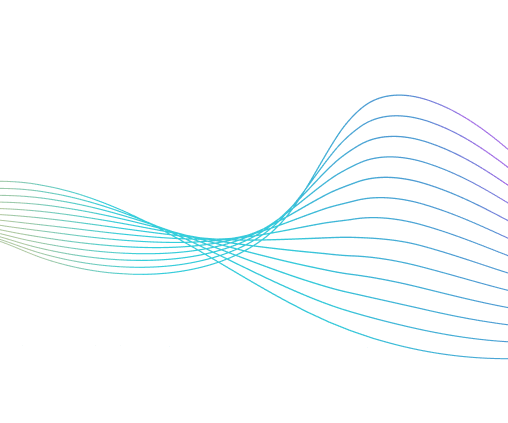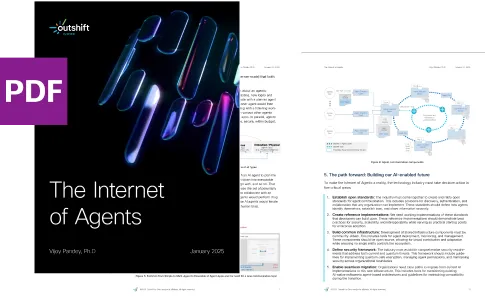Published on 00/00/0000
Last updated on 00/00/0000
Published on 00/00/0000
Last updated on 00/00/0000
Share
Share
INSIDE OUTSHIFT
5 min read

Share
The VentureBeat AI Impact Tour presented by Outshift by Cisco convened more than 100 leading technologists and innovators in San Francisco. They met for an exclusive gathering to discuss the future of artificial intelligence (AI) under the theme "Agentic AI: The Next Giant Leap Forward in the AI Revolution." The event brought together top minds from enterprises such as Meta, Intuit, and Asana, to exchange ideas and insights.
The tour highlighted the theme through two engaging keynote presentations and a panel discussion. Vijoy Pandey, Senior Vice President of Outshift, shared his expertise in a session titled “Building Out the Infrastructure of Agentic AI.” Mano Paluri, Vice President of Generative AI Engineering at Meta, delivered a presentation titled “Agentic AI Future.”
This stop on the VentureBeat AI Impact Tour served as a forum to explore the transformative potential of agentic AI. This type of AI is different from traditional AI, as it can perform tasks autonomously and make human-like decisions. Such advanced systems hold the promise to revolutionize industries from software development to marketing and beyond.
“They’re going to change the way humans do work, starting with software and moving towards knowledge work, and then moving towards services,” Pandey said.
Outshift plans to use Cisco’s expertise in internet infrastructure, communications, and security and apply this knowledge to build the foundation of an Internet of Agents (IoA).
To achieve this future, participation is needed from the entire AI value chain: infrastructure builders, operators, application developers, and end users. Bringing together diverse perspectives to define comprehensive standards for the Internet of Agents and charter open source projects that address all layers of the stack will ensure that the ecosystem isn’t built from just one viewpoint. Teams of distributed AI agents will dynamically form to solve abstract business problems.
“If you think about that future where these agentic systems are going to work together to solve bigger problems, we need distributed agentic systems computing and we need an open, interoperable Internet of Agents,” Pandey said.
Through insightful discussion of real-world applications, Pandey spoke about Outshift's commitment to innovation and inclusivity in the agentic AI space. He highlighted that one of Outshift's incubation teams is developing a multi-agent system for enterprises.
This work is crucial for developing a seamless collaboration between agentic systems. The goal is an Internet of Agents. With this concept, systems work together effortlessly, which means the tech community must unite to build solutions.
Shubha Pant, Vice President of AI/ML at Outshift, shared practical applications of agentic AI that Outshift is exploring to build. She discussed a multi-agent diagnostic system designed to predict IT issues, identify root causes, and offer mitigation strategies in real-time. The system has the potential to significantly enhance product adoption and operational efficiency for customers.
Pant also highlighted Outshift's focus on creating open standards for agent composition, discovery, orchestration, and communication. "We are working on modular architecture for the orchestration layer which will enable easy discovery of relevant agents in a standard way, ability to compose the execution graph, and establish standard communication protocol," she said.
The focus of this work is on interoperability and standardization to realize the full potential of this distributed agentic computing layer.
The panel discussion of the event covered the many complexities in the AI space, from integration with existing systems to refining performance. Pant acknowledged the inherent obstacles in developing consistent, reliable agentic systems.
"Consistency: Planning, composition, tool selection are basic ingredients of AI Agents, and these are powered by LLMs. However, LLMs are inherently stochastic so they may not always yield consistent results across various runs and may be deemed unreliable," Pant noted.
Pant also addressed the issue of latency in time-critical tasks. "Time-critical tasks demand quick responses. We're starting with building specific agents and optimizing through instructions and choice of models and tools to significantly reduce response times," she added.
The future looks promising. With each hurdle overcome, the development of AI agents that deliver business value and transform customer experiences draws nearer.
The key takeaway from the speakers at the VentureBeat AI Impact Tour along with the conversation with the attendees before and after the event, is the importance of the tech community working together to build an agentic AI future to benefit everyone. Building this interconnected future demands a collective effort to enable developers, researchers, and leaders to innovate freely, without the constraints of proprietary platforms.
Outshift is advancing collaborative intelligence with AI agents. Agents are seen as partners in a new era of problem-solving, not just isolated tools. The future of AI agents brings new opportunities to enhance human capabilities and achieve planet-scale impact beyond human imagination.
Join the Outshift Internet of Agents community to stay updated on Outshift's progress in developing an open, interoperable AI agent infrastructure.


Get emerging insights on innovative technology straight to your inbox.
Outshift is leading the way in building an open, interoperable, agent-first, quantum-safe infrastructure for the future of artificial intelligence.

* No email required

The Shift is Outshift’s exclusive newsletter.
Get the latest news and updates on agentic AI, quantum, next-gen infra, and other groundbreaking innovations shaping the future of technology straight to your inbox.
